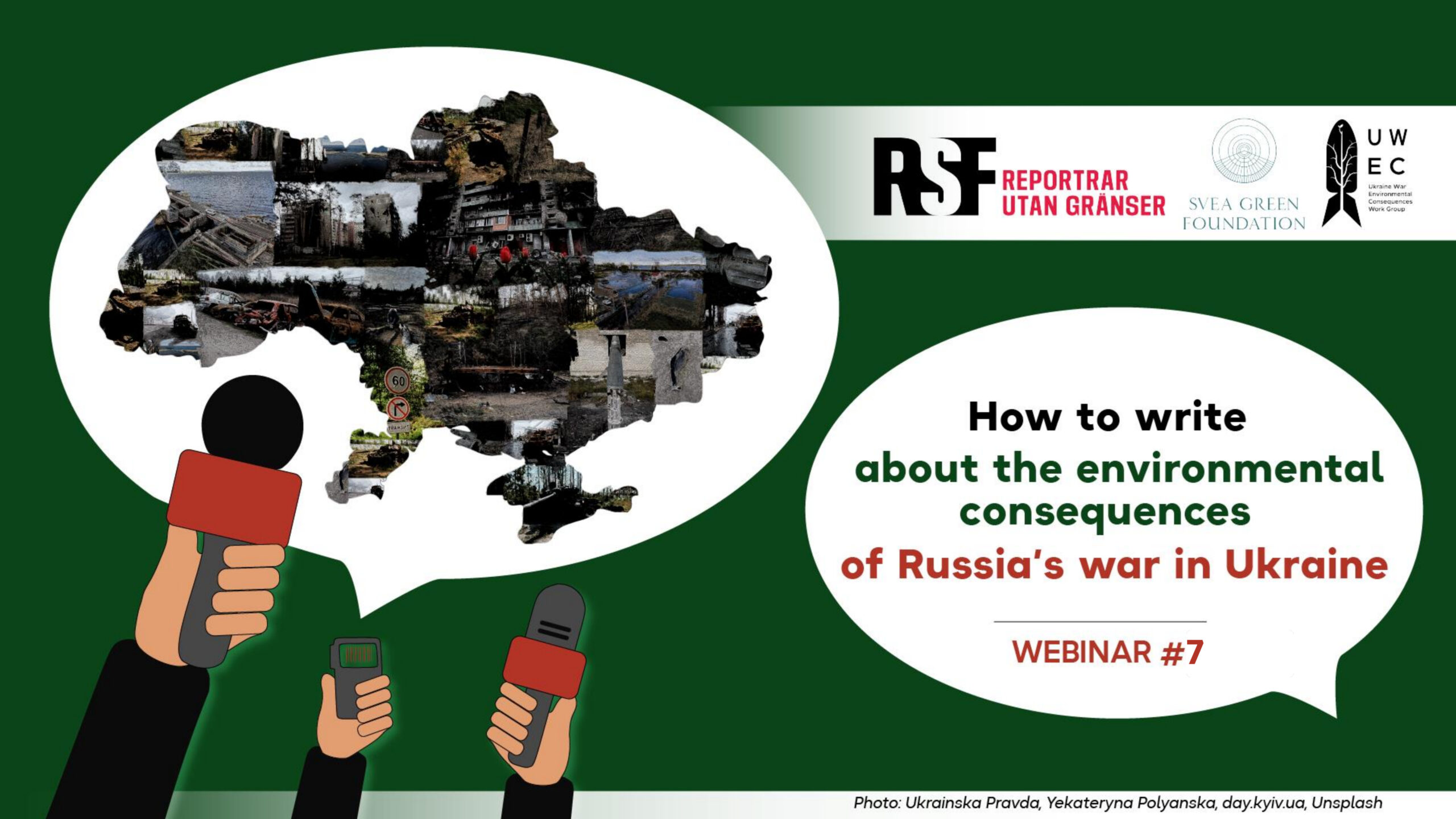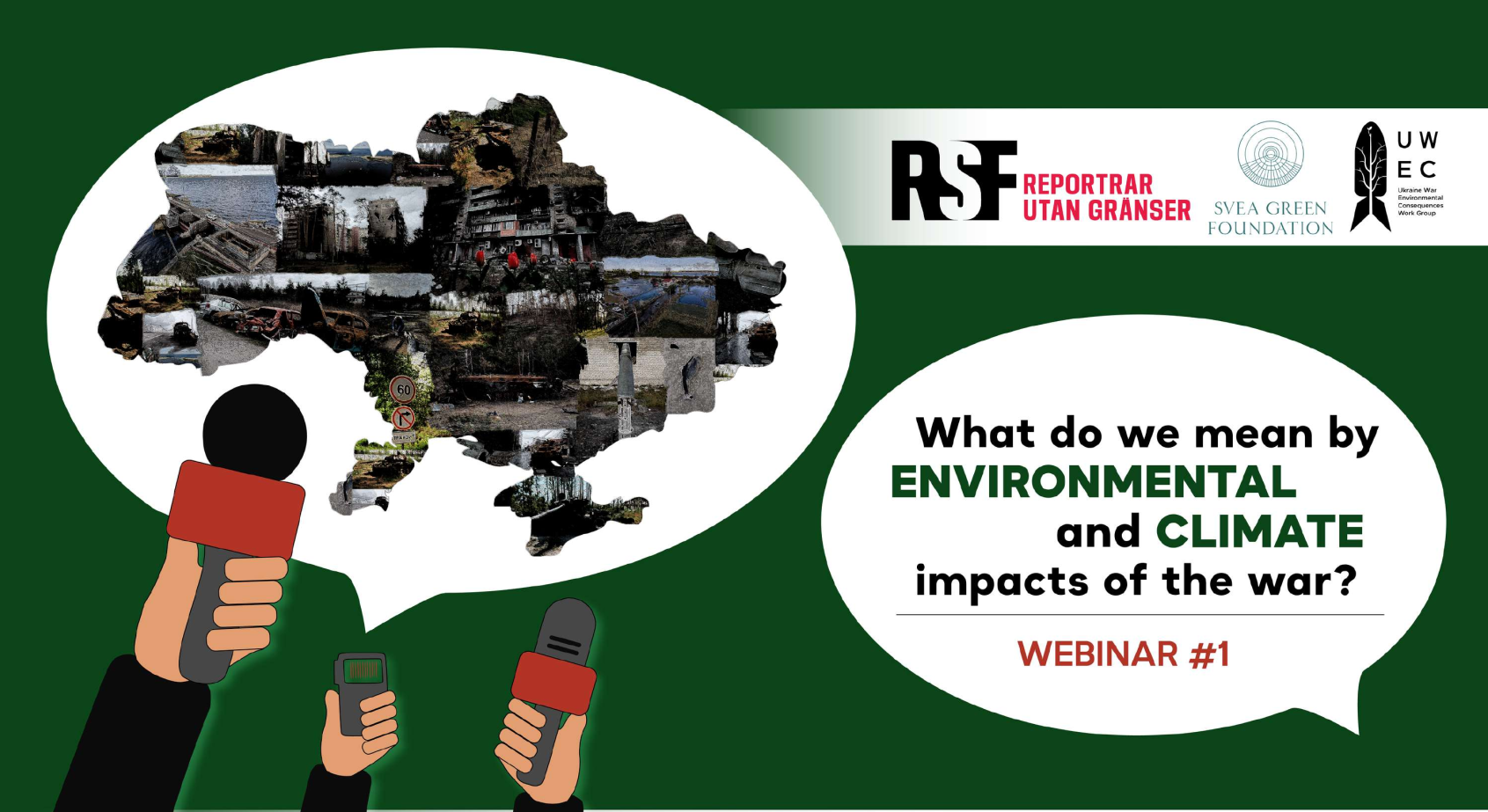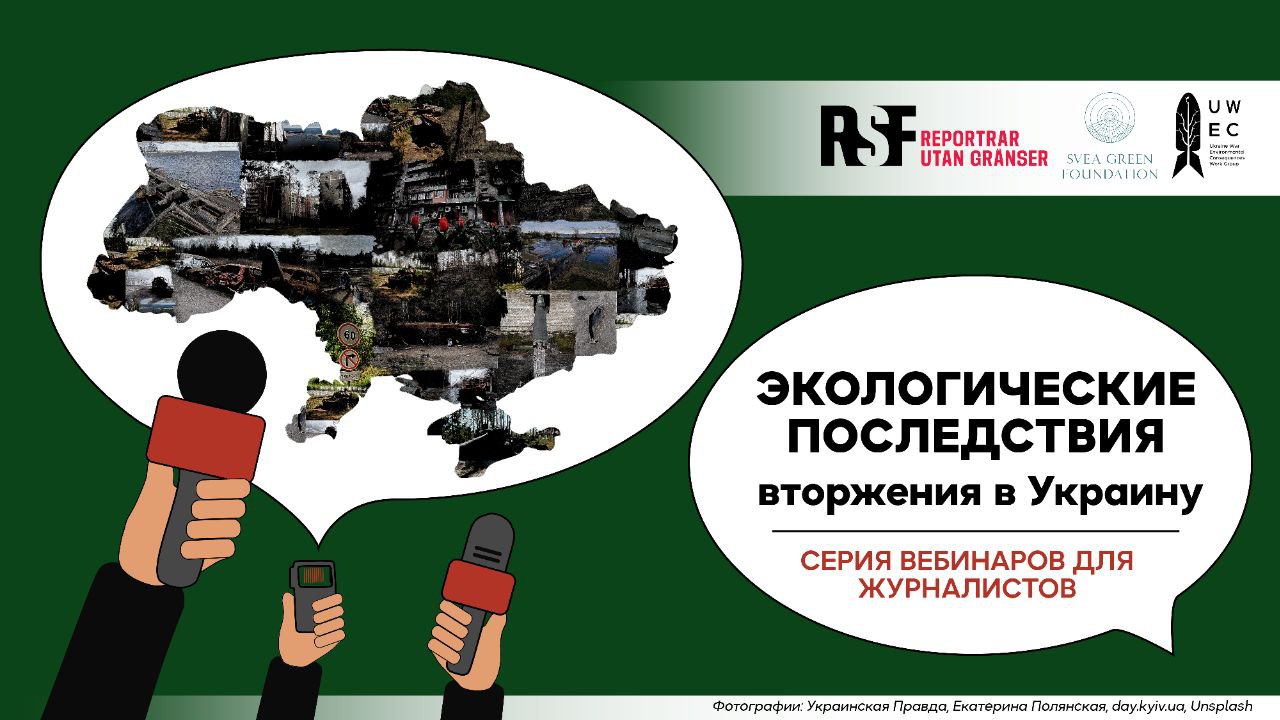Together with Reporters without Borders–Sweden and Svea Green Foundation, UWEC Work Group hosted the fifth in a series of webinars on the environmental and climate consequences of Russia’s invasion of Ukraine on 25 October. Its theme was the collection and analysis of data on the environmental consequences of the war in Ukraine.
Presenting experts spoke about the collection and verification of data on environmental damage resulting from military operations and described the techniques using satellite technologies, field research, and other methods.
Alexander Opanasenko from the Ukrainian NGO Ecoaction spoke about the organization’s experience in documenting environmental damage and environmental crimes, including the creation of interactive maps.
Wim Zwijnenburg from Paxforpeace talked about the use of OSINT techniques, remote sensing, and Earth Observation Systems to analyze the environmental consequences of the war in Ukraine. He also highlighted opportunities for collaboration and participation in data collection and analysis for organizations and interested activists from various countries.
Representing the Conflict and Environment Observatory (CEOBS), Linas Svolkinas, spoke about remote data collection, verification of publicly available data, gaps in available information about environmental damage and opportunities to eliminate them, as well as the peculiarities of the war in Ukraine in terms of damage to the environment.
The experts’ presentations are available in English:
Video recording of the webinar in English:
Video recording in Russian:
📽 Video recordings of the webinars are also available on our YouTube channel








Comments on “Webinar 5: Gathering and analyzing data on the environmental consequences of Russia’s invasion of Ukraine”